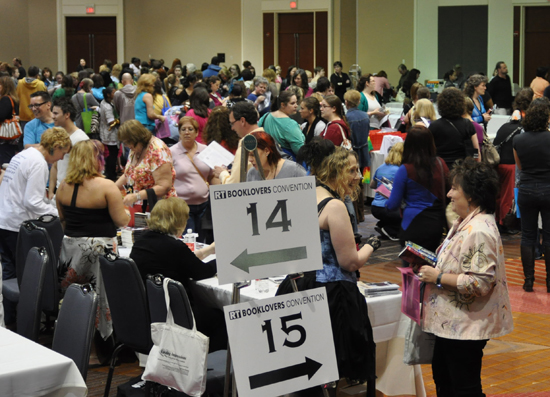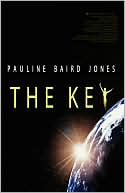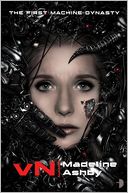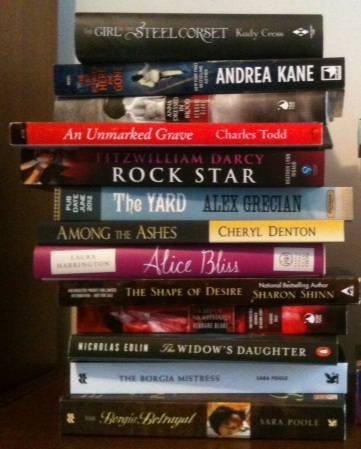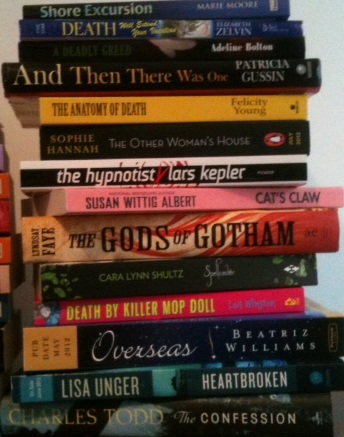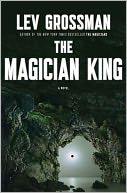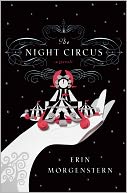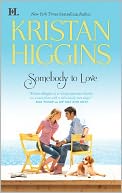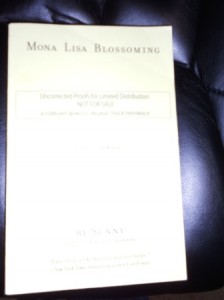 “When I get a little money I buy books; and if any is left I buy food and clothes.”
“When I get a little money I buy books; and if any is left I buy food and clothes.”
The quote is from Desiderius Erasmus. How totally appropriate, but also one I’ve lived by long before I knew it existed. My mom would tell you I spent my allowance on books when I was a kid. And generally owed her future allowances.
I’ve always collected books. More books than I could read at any given point in time. I love having the choice of what to read next. It’s not the object, it’s the content. Ebooks suit me just fine for most things, and they take up less space. This is a big deal when you move as often as we do, and when you own as many “dead tree” books as we do.
Still over 2,000. We haven’t even unpacked them all from the last move. In December.
 About ARCs. I’ve worked in libraries that received ARCs in lots of different ways. One of my former places of work (FPOW) was in a major metropolitan area. The city newspaper still had a significant book section on Sundays, and received books for review. The newspaper donated their review copies to the library. About once a month we received an industrial pallet-load of books, mixed ARCs and “real” books. The “real” books often went into the collection. But the ARCs, never. Staff had the pick of the ARCs for collection development, reading copies, whatever we liked. But they were never put in the collection. If you are wondering what the newspaper got out of this arrangement, they got a tax write-off.
About ARCs. I’ve worked in libraries that received ARCs in lots of different ways. One of my former places of work (FPOW) was in a major metropolitan area. The city newspaper still had a significant book section on Sundays, and received books for review. The newspaper donated their review copies to the library. About once a month we received an industrial pallet-load of books, mixed ARCs and “real” books. The “real” books often went into the collection. But the ARCs, never. Staff had the pick of the ARCs for collection development, reading copies, whatever we liked. But they were never put in the collection. If you are wondering what the newspaper got out of this arrangement, they got a tax write-off.
Other libraries I have worked at do sell ARCs at book sales, or they end up in the Friends of the Library book sales. I haven’t worked at a library that has put them in the collection, but I know it happens.
But what does any of this have to do with ARCs now? I can hear the question from here. The recent #ARCgate mess brought up a lot of questions and it made me think about the present and future of ARCs in general, and what any mailbox-type post looks like in particular.
I do get a lot of ARCs. More in one week than I can read in a week. I’ve always picked up more books in a week than I could read that week. The difference now is that I’m getting a lot of eARCs instead of deliveries from Amazon and B&N or borrowing books from the library.

![]() But the ARC “stack” can look like a book haul, and that isn’t the purpose of it for me. I choose eARCs because eARCs are a win/win. My eARC does not automatically deny any other reviewer the same eARC. That’s the beauty of NetGalley and Edelweiss. No print, no postage, not necessarily a limited number of ARCs the way that a print run by its very nature limits the number of ARCs.
But the ARC “stack” can look like a book haul, and that isn’t the purpose of it for me. I choose eARCs because eARCs are a win/win. My eARC does not automatically deny any other reviewer the same eARC. That’s the beauty of NetGalley and Edelweiss. No print, no postage, not necessarily a limited number of ARCs the way that a print run by its very nature limits the number of ARCs.
 And no print ARCs left on my shelves at the end that I’m not quite sure what to do with. Because the last thing my house needs is more print books. One of the clear messages of the whole ARCgate mess is that what you should do with your ARCs after you’re finished is very, well, unclear.
And no print ARCs left on my shelves at the end that I’m not quite sure what to do with. Because the last thing my house needs is more print books. One of the clear messages of the whole ARCgate mess is that what you should do with your ARCs after you’re finished is very, well, unclear.
What I’m curious about, dear readers, is how you feel when you see mailbox-type posts on book blogs. Do you see them as the blogger doing a bit to promote books that she or he might not have time to review? Do you see them as bragging? Do you find them useful for adding to your own TBR pile? Do you care?
Please share your thoughts! I’ve been having a serious re-think on this topic after ARCgate, and I’d love to hear from you.



